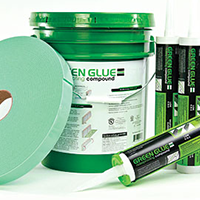Top 5 sound proofing materials for your living space
- 24 February 2014
- Posted by: Madhuraka
- Category: Article
 When choosing the right soundproofing material for your home, you have to first understand the difference between sound absorption and soundproofing. These two terms are often confused with one another. Soundproofing refers to the act of using various materials to prevent sound from leaving or entering a specific enclosed space. One fine example of this is preventing the television sound coming from a neighbour’s house from entering your room. On the other hand, sound absorption is refers to the process of enhancing the sound in a specific room. It is what people usually try to accomplish when they set up a home theatre system or a recording studio. For new structures, specialized windows and insulation are added during build up, whereas vinyl or acoustic foam are usually added as padding in existing structures.
When choosing the right soundproofing material for your home, you have to first understand the difference between sound absorption and soundproofing. These two terms are often confused with one another. Soundproofing refers to the act of using various materials to prevent sound from leaving or entering a specific enclosed space. One fine example of this is preventing the television sound coming from a neighbour’s house from entering your room. On the other hand, sound absorption is refers to the process of enhancing the sound in a specific room. It is what people usually try to accomplish when they set up a home theatre system or a recording studio. For new structures, specialized windows and insulation are added during build up, whereas vinyl or acoustic foam are usually added as padding in existing structures.
There are a number of construction items that are being promoted as being able to considerably lessen the noise inside a structure. Some of these materials are amazingly effective when it comes to soundproofing, while the rest have very minimal noise reducing effect. Various noise frequencies and the different sound transmission methods require specific soundproofing materials mounted in particular spots. This is where you need an expert acoustics and soundproofing professional. A soundproofing professional can help you effectively block sound from entering your room and prevent you from wasting your hard-earned cash on totally useless materials.
Here are some of the most commonly used soundproofing materials in the market today:
- Panels. The three kinds of soundproofing panels areDamped drywalls are actually drywalls equipped with sound curbing layers. They are commercially available under so many brands. This material possesses excellent soundproofing features.Drywalls are also known as plasterboards or gypsum boards. Drywalls are inexpensive and effective as soundproofing material.Acoustical boards or soundboards are not as effective in keeping sound away as the first two panels but they can be used as spacing layers in floors if extra mass is not necessary. These boards are not capable of damping and effectively absorbing sound.
- Insulation. Fibres that have been loosely packed are very effective sound absorbers. Some of the more common insulation materials include mineral wool and standard fibreglass. The former is cheaper. Others use thermal foams but they are poor as soundproofing material.
- Sound curtains. Unlike regular draperies, sound curtains are industrial products that have been designed with thick layers of vinyl which blocks sound.
- Sealants or acoustical caulk. Acoustical sealants are applied to seal seams and prevent sound seepage. If your doors, windows, and walls are not properly sealed, the efficacy of the other soundproofing materials is going to be significantly diminished as the sound will just penetrate via the cracks.
- Pre-built units. Look for pre-built home components such as doors and windows that have been engineered to be soundproof. These structural components are effective as soundproofing materials and they can definitely help you save time and money.

